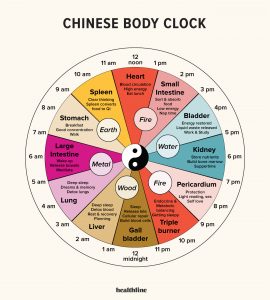Principles of Feng Shui and Vastu Shastra on Sleep Direction
Vastu Shastra, an Indian idea closely tied to feng shui, provides information on energies that could affect your sleeping patterns or the quality of your sleep. Try matching your sleeping posture with Vastu principles if you’re having problems falling asleep.
Vastu Shastra: What Is It?
Vastu Shastra is a theory about balance based on science that has an impact on architectural design. It is comparable to feng shui, a Chinese technique that emphasizes the utilization of energy to establish harmony in daily life. Both of these ideas affect how you’re living or working place should be designed because it might have an impact on your health.
Both of these ideas assist you in getting the most out of your surroundings and life to maintain a good outlook. Even if you don’t fully subscribe to the ideas, using them could help you become more organized and make better use of your space.
The principles state that sleeping in the wrong way can harm your health and wellbeing, causing tension and negativity.

Direction for Sleeping
Vastu asserts that your general wellbeing is influenced by how space and direction interact with external factors like the wind and sun. You should sleep with your head oriented in any direction other than north, according to Vastu, as each one offers different advantages. According to experts, sleeping with one’s head toward the north causes sickness and poorer sleep.
- North
The head of the deceased is supposed to point toward the north until cremation in Hindu tradition. The north is thought to be the direction the soul travels towards when leaving the body. This idea implies that the only benefits of sleeping with your head turned toward the north are lucid dreaming and astral travel.
Southern Hemisphere’s optimal sleeping direction
According to certain studies, when animals are feeding or resting, such as cattle and deer, their bodies are naturally aligned in a north-south direction. Additionally, preliminary studies demonstrate that when people transition to sleeping with their faces to the south, their blood pressure decreases, and the quality of their sleep increases.
According to certain studies and Vastu shastra, the Earth’s electromagnetic field may provide an explanation for this.
India is the origin country of the ancient architectural tradition known as Vastu shastra. Buildings are viewed by practitioners as living creatures that can be created in harmony with the forces of nature. The idea is influenced by Hindu mythology and beliefs, such as the idea that the human body has north and south poles that are analogous to those of the Earth.
There is some indication that sleeping toward the south may lower your risk of high blood pressure, despite the fact that there is no research linking headaches with sleep direction. In one study, the effects of sleeping north-south versus east-west were evaluated. Three months later, those who slept with their bodies oriented north to south experienced lower blood pressure, greater sleep quality, and longer sleep duration. The researchers came to the conclusion that sleeping with the Earth’s electromagnetic field in alignment might enhance sleep quality.
Recent research suggests that people may be sensitive to the Earth’s magnetic energy since it revealed changes in the participants’ brain waves when they were subjected to controlled electromagnetic fields. However, earlier research that exposed participants to magnetic fields while they slept discovered that it had no impact on their quality of sleep. The National Center for Biotechnology Information facilitates access to biomedical and genomic data, advancing science and health, therefore further study in this area is still required.

Is Sleeping in the Opposite Direction Bad?
According to Vastu shastra, sleeping with your body turned toward the north is the worst possible scenario since your head behaves like a north pole. It causes tension, which could cause headaches and other health issues. Your head should be pointing south when you sleep, in accordance with the electromagnetic pull of the Earth, to establish balance. Your bedroom should ideally face south throughout.
According to several studies, people who sleep in the north-south position also take longer to enter rapid eye movement (REM) sleep, which is crucial for healthy general functioning, emotional stability, and cognitive function. In this study, people who slept east-west did so earlier in the REM cycle. However, other studies have revealed that those who sleep east-west generally get less sleep. The benefits and drawbacks of sleeping east-west may balance one other out until additional research is done.

Additional Sleep-Related Eastern Medicine Principles
One concept used in Eastern medicine to encourage sleep is sleeping orientation. Others are provided by feng shui, a Chinese practice, and by Vastu Shastra. With the careful arrangement and orientation of objects, feng shui aims to encourage the flow of positive energy, or chi7, in your environment. For instance, practitioners may switch out a desk for a sofa in the bedroom to enhance their love life or position their bed against the wall to boost chi.
Both feng shui and Vastu shastra emphasize energetic balance and the significance of planning your place to promote health and well-being, albeit their specifics may differ.

Set up your bed in a comfortable position
Feng shui dictates that you should not position your bed underneath any windows, but rather immediately against a wall. It should ideally be positioned on the wall across from your bedroom door, so you can plainly see the door without being direct across from it. It is claimed that doing this place you in the “command position,” which gives you a sense of power and control.
If your bed does not fit against that wall, you can enlarge the room with a mirror so you can see the door and feel in charge.
Additionally, avoid lying down with your feet facing the door. Feng shui views this so-called “coffin posture” as an unfavorable sleeping position because it resembles the way a body is taken from a room after death.

Bedroom Design
Pay attention to the bedroom’s layout to make sure you’re facing the appropriate way to sleep. Keep the bedroom clean of clutter to encourage a smooth flow of pleasant energies.
The three types of doshas—Vata, pitta, and Kapha—representing the diverse natural elements, according to Vastu shastra, should be addressed in the color scheme.
- The color combination of green and yellow is best for people with Vata dosha (air).
- Pitta dosha is best served by the color combination of blue and green (fire and water).
- The color scheme of red and violet is ideal for the Kapha dosha (earth and water)
